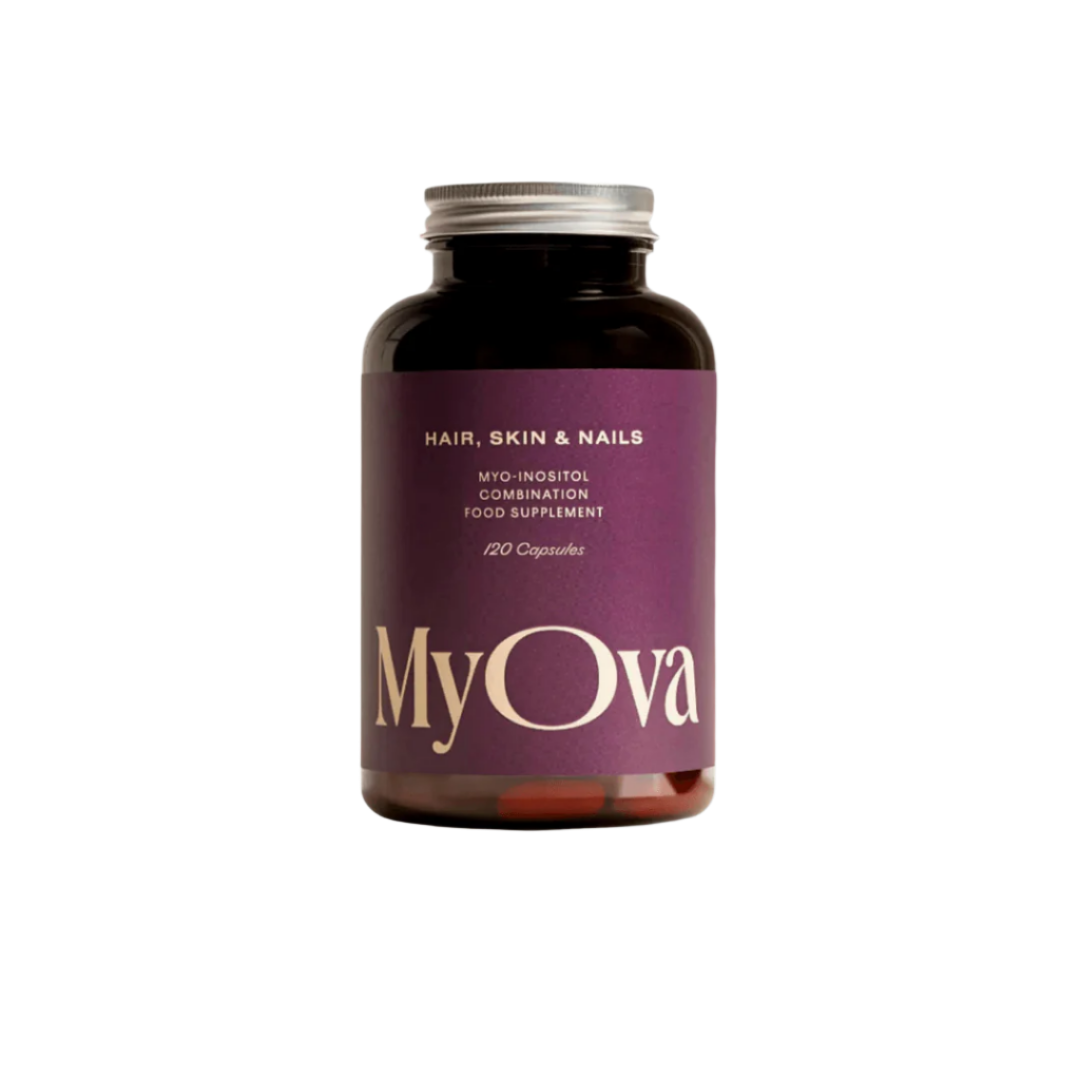The Journal
Why I Built Nua Fertility: Our Journey, the Microbiome, and a New Way of Thinking About Fertility
In this founder-led article, Deborah Brock shares the deeply personal fertility journey that led to the creation of Nua Fertility. Reflecting on years of infertility, male factor diagnosis, and emotional strain, she explains how shifting to a holistic, whole-body approach transformed their experience. The article explores emerging research on the microbiome and its role in both female and male fertility, highlighting why gut, vaginal, and reproductive health are often overlooked in conventional care. It also introduces Nua Fertility’s mission to provide education, microbiome-focused support, and compassionate resources for people navigating fertility challenges. At its core, this piece invites readers to rethink fertility — not as a single diagnosis or fix, but as a complex system that deserves understanding, shared responsibility, and care.
Learn moreDearest Gentle Reader, Meet Your Cycle
This article uses a lyrical love story to reframe how we think about the menstrual cycle — not as something to manage or fix, but as something to understand. Through the characters of Little Miss Cycle and Lord Temporous, it explores the power of patient observation, trust, and consistency in fertility awareness. Rather than rigid routines or guesswork, the story highlights a gentler approach to cycle tracking — one rooted in listening to the body over time. It invites readers to reconsider their relationship with their cycle and introduces tools like Tempdrop as quiet companions that support understanding without pressure. At its heart, this piece is an invitation to fall in love with your cycle — slowly, thoughtfully, and on your own terms.
Learn moreSmall Steps, Not Big Leaps: My Kind of January
This article explores a gentler approach to January, focusing on small, realistic changes rather than big resolutions. Through simple routines at home, work, and in everyday life, Charlotte reflects on how small steps can lead to lasting progress without pressure or burnout.
Learn moreSleep, Rest, and Why They Matter More Than You Think
Sleep and rest support hormones, skin, and wellbeing. Learn why they matter and how Tempdrop sleep tracking and Kiki Health Serenity support better rest.
Learn moreLiving With Eczema: More Than Just a Skin Condition by Janna Kuhl
Founder Janna created Calma from lifelong eczema experience, offering comforting skincare that supports sensitive skin, confidence, and emotional wellbeing.
Learn moreWhy 3 Months Really Matters to fertility by Ilana Garsin
How Long Does It Take to Improve Hormone Health and Fertility? When it comes to hormone health and fertility, one of the first questions I’m often asked is: “How long will it take before I see results?” The honest answer? It takes time, because your body works in beautiful, natural cycles. Why 3 months really matters The eggs you ovulate today actually began developing about three months ago. It takes roughly 90–100 days for an egg to mature before it’s ready for ovulation. So the lifestyle choices, stress levels, supplements, and acupuncture sessions you have now are influencing the egg you’ll release in three months’ time. You’re born with all the eggs you’ll ever have — you can’t create new ones — but what you can change is the environment those eggs develop in. Through acupuncture, nutrition, and reducing stress, you can improve blood flow, oxygenation, and hormonal balance, creating the best possible conditions for your eggs to mature and ovulate. You can also influence the uterine environment — ensuring your endometrial lining is thick, healthy, and receptive, ready to support implantation and early pregnancy. That’s why I recommend allowing at least 3–4 menstrual cycles when addressing hormonal or fertility issues. This gives your body time to rebalance, your hormones to regulate, and your reproductive system to respond. Acupuncture works with your body’s rhythm Acupuncture supports the body through these cycles, helping to: Improve blood flow to the ovaries and uterus Support healthy ovulation and implantation Balance hormones like oestrogen, progesterone, and FSH Reduce stress and calm the nervous system Improve sleep, digestion, and energy — all vital for fertility However, acupuncture isn’t a “quick fix.” Just as it takes three months to nurture an egg, it takes several cycles for acupuncture to create lasting changes in your hormonal patterns and reproductive health. Over these weeks, acupuncture gently retrains your body to function in a more balanced way — regulating cycles, improving flow, reducing PMS, and supporting better-quality eggs. Conditions acupuncture can help with Acupuncture can support a wide range of hormonal and fertility-related conditions, including: Irregular or absent periods (amenorrhoea) Painful or heavy periods (dysmenorrhoea, menorrhagia) Polycystic Ovary Syndrome (PCOS) and Polycystic Ovaries (PCO) Endometriosis High FSH or low AMH Unexplained infertility Thin or poor-quality endometrial lining Luteal phase defect or short cycles Recurrent miscarriage Thyroid-related fertility issues Perimenopause and menopause symptoms such as hot flushes, anxiety, insomnia, and mood swings Whether the issue lies with ovulation, egg quality, hormone imbalance, or stress, acupuncture works to restore communication between the body’s key systems — helping you feel more balanced, calm, and in tune with your natural cycle. The stress–hormone connection One of the most powerful (and often overlooked) influences on fertility is stress. When we’re under constant stress, our brain shifts into “survival mode.” The hypothalamus and pituitary gland, which act as your body’s hormonal control centres, reduce communication with the ovaries — known as the hypothalamus–pituitary–ovarian (HPO) axis. This can delay or even suppress ovulation, affect hormone levels, and disrupt your cycle. Acupuncture helps calm the stress response, balance cortisol, and restore that vital communication between brain and ovaries — allowing your body to return to a more regular rhythm. Many women notice more consistent cycles, improved mood, and better sleep once stress levels begin to settle. Don’t forget about sperm health Coincidentally, sperm also follows a similar timeframe. Although sperm are made fresh every day, it takes around three months for sperm to fully mature. That means the steps your partner takes now — through acupuncture, supplements, nutrition, and lifestyle — will influence the quality of his sperm three months down the line. Supporting both partners together often leads to much better fertility outcomes. Track your progress with BBT During this time, tracking your Basal Body Temperature (BBT) can be a wonderful tool. By noting your temperature daily, you can start to see clear signs of ovulation, hormone shifts, and improvements in your cycle health. Many of my patients find it empowering to actually see the changes happening as their charts become more balanced. See Product Supplements and self-care for three months These same three months are also the perfect window to support your body with good-quality supplements, nourishing foods, and restorative rest. Think of it as a 90-day investment in your future fertility and hormone health. Every acupuncture session, every supplement, and every good night’s sleep adds up to the changes you’ll see in a few months’ time. Find the perfect fertility supplement for you Menopause and hormonal balance take time too The same principle applies to perimenopause and menopause. Hormonal shifts during this stage don’t happen overnight — and neither does balance. Acupuncture helps ease symptoms like hot flushes, night sweats, anxiety, poor sleep, and mood changes, but it works best when given time to regulate your body’s feedback systems. With consistency, patience, and care, most women notice gradual, sustainable improvements rather than quick, short-lived fixes. Patience brings results Whether you’re trying to conceive, regulate your periods, or manage menopause symptoms, patience and consistency are key. Just as you wouldn’t expect to feel fit after one visit to the gym, your hormonal system also needs time to respond and reset. By committing to 3–4 cycles of acupuncture, tracking your cycle, supporting yourself with the right supplements, and giving your body space to heal, you’re laying the foundations for lasting hormonal balance and fertility health. Your body is always working for you — sometimes, it just needs the time and support to show it. Thank you Ilana Thank you so much, Ilana, for sharing your insight, wisdom, and guidance on why the first three months truly matter. Your thoughtful perspective and expertise have made this blog possible, and your voice brings clarity, inspiration, and encouragement to every reader. I’m deeply grateful for your generosity in contributing your knowledge and for helping others recognize the power of patience, consistency, and self-trust. About Acupuncture in St Albans | Holistic Healing | Acupuncture by Ilana Ilana Garsin Ilana GarsinI has been an acupuncturist for over 15 years working from her lovely garden clinic in the village of Bricket Wood, in St Albans, just 5 minutes from Radlett and easily accessible from the M25, M1, A414 and A405.Although llana work's with patients with a variety of issues, She has a special interest in fertility, pregnancy menopause and pain management.
Learn moreTempdrop vs Oura Ring: Which Is Better for Cycle Tracking and Ovulation Confirmation?
If you’re comparing Tempdrop vs Oura Ring for cycle tracking, fertility awareness, or ovulation confirmation, you’re not alone. Wearable technology has made temperature tracking more accessible than ever. But not all wearables are designed for the same purpose. While both Tempdrop and Oura Ring collect temperature-related data, the way they measure it, interpret it, and apply it to fertility tracking is fundamentally different. This article focuses only on what matters for menstrual cycle tracking: Basal body temperature (BBT) Ovulation confirmation Fertile window identification Temperature accuracy and consistency If your goal is understanding your cycle and fertile window - rather than general wellness metrics - those differences matter. Why Basal Body Temperature Matters for Cycle Tracking Basal body temperature is your body’s resting temperature, measured during sleep or immediately upon waking. Across a menstrual cycle, BBT follows a predictable pattern: Lower temperatures before ovulation A sustained temperature rise after ovulation Higher temperatures during the luteal phase This post-ovulation temperature rise is one of the most reliable physiological markers that ovulation has already occurred. That distinction is important. Basal body temperature does not predict ovulation in advance - it confirms that ovulation has happened. For many people using fertility awareness methods, this confirmation is essential for: Identifying fertile and non-fertile days Understanding cycle length and regularity Supporting pregnancy planning or avoidance Accurate ovulation confirmation depends on clean, consistent temperature data. How Tempdrop Measures Basal Body Temperature Tempdrop is designed specifically for fertility awareness and cycle tracking. It is worn on the upper arm overnight and measures axillary temperature, which is closely linked to core body temperature. Importantly, Tempdrop does not rely on a single temperature reading. Instead, it: Collects temperature continuously throughout sleep Uses an algorithm to filter out disturbances such as movement, changes in sleep position, or environmental variation Produces a stable basal body temperature value for each night This approach removes many of the challenges associated with traditional oral BBT tracking, such as waking at the same time every day or disrupted sleep. Crucially, this technology is aligned with how basal body temperature is used in fertility awareness - as a retrospective marker of ovulation, identified through sustained temperature shifts. Scientific Validation of Axillary Temperature for Ovulation Tracking A peer-reviewed study published in Sensors (MDPI, 2025) evaluated the use of an axillary temperature wearable for cycle tracking and ovulation timing across 194 menstrual cycles. The study found that: Axillary temperature data could accurately identify the post-ovulation temperature rise The fertile window and ovulation timing could be determined using overnight temperature measurements The resulting temperature curves clearly reflected menstrual cycle phases This research supports the use of axillary temperature wearables for reliable ovulation confirmation based on basal body temperature patterns. While the study did not compare specific consumer brands, it validates the underlying measurement approach that Tempdrop uses. How Oura Ring Tracks Temperature The Oura Ring is a multi-purpose wellness wearable designed primarily for: Sleep tracking Readiness and recovery metrics General health insights As part of this broader functionality, Oura tracks skin temperature variation at the finger. According to Oura and independent reviews, this data is presented as: Night-to-night temperature deviations Trends relative to an individual baseline Importantly, Oura does not present its temperature data as basal body temperature. Instead, it focuses on changes in skin temperature over time, which may be influenced by: Environment Circulation Illness Stress Sleep conditions In reviews such as Who What Wear’s Oura Ring review, temperature tracking is framed as a general wellness indicator rather than a fertility-specific tool. Skin Temperature vs Basal Body Temperature: Why the Difference Matters This distinction is key when comparing Tempdrop vs Oura Ring for fertility use. Basal body temperature tracking requires: Consistency Reduced noise Alignment with physiological ovulation markers Skin temperature trends, while useful for overall health awareness, are not the same as basal body temperature and are not designed specifically for ovulation confirmation. Tempdrop’s approach is purpose-built for identifying: Sustained post-ovulation temperature shifts Clear cycle patterns Fertility-relevant insights based on BBT methodology Oura’s approach is broader, offering temperature data as one input among many for wellness trends, rather than a dedicated fertility signal. When Oura Ring Is the Right Choice: General Health & Wellness It’s important to say this clearly: Oura Ring is not the wrong technology - it’s the right technology for a different goal. If your primary focus is general health and wellness, rather than fertility awareness or ovulation confirmation, Oura Ring may be the better fit. Oura Ring is designed to support: Sleep quality and recovery insights Daily readiness and wellness trends Long-term changes in health metrics Broad lifestyle awareness rather than cycle-specific interpretation As part of this wider wellness picture, Oura tracks skin temperature variation, presenting it as a trend relative to your personal baseline. This can be useful for noticing: Changes related to illness or recovery Stress or lifestyle impacts Overall physiological patterns over time For users who want a single wearable to support general wellbeing, rather than focused fertility tracking, Oura Ring’s multi-metric approach makes sense. However, this broader focus is also its limitation when it comes to menstrual cycle tracking. Choosing the Right Tool for the Right Goal When comparing Tempdrop vs Oura Ring, the most important question isn’t which device is better overall - it’s what are you using it for? If your goal is general wellness, sleep trends, and lifestyle insights, Oura Ring is designed for that purpose. If your goal is basal body temperature tracking, ovulation confirmation, and cycle understanding, Tempdrop is built specifically for that role. Tempdrop’s technology aligns directly with fertility awareness methods and is supported by peer-reviewed research validating axillary temperature tracking for identifying ovulation timing and fertile windows. Oura Ring’s technology aligns with a broader wellness framework, where temperature is one signal among many rather than a fertility-specific metric. Tempdrop vs Oura Ring for Ovulation Confirmation When comparing the two specifically for ovulation confirmation: Tempdrop Designed exclusively for fertility awareness Measures axillary temperature overnight Filters disturbances to produce a true basal temperature curve Aligns with fertility awareness methods and BBT interpretation Supported by peer-reviewed research validating this measurement approach Oura Ring Designed for general wellness and sleep tracking Measures skin temperature at the finger Presents temperature as a trend or deviation Not designed specifically to confirm ovulation via BBT patterns For users whose primary goal is understanding their menstrual cycle, this difference in design philosophy is critical. Explore Tempdrop for Cycle Tracking If your focus is accurate basal body temperature tracking and ovulation confirmation, Tempdrop is designed specifically for that purpose. Explore Tempdrop and see how it supports fertility-focused temperature tracking Final Thoughts: Choosing the Right Technology for Your Cycle When choosing between Tempdrop and Oura Ring, clarity comes from matching the technology to your intention. Oura Ring is well suited to people seeking a comprehensive wellness wearable that tracks sleep, recovery, and long-term health trends - with temperature variation as part of that picture. Tempdrop, by contrast, is designed specifically for people who want to understand their menstrual cycle through basal body temperature, confirm when ovulation has occurred, and gain fertility-focused insights based on established physiological patterns. If your priority is general health, Oura Ring may be the right choice. If your priority is cycle tracking and ovulation confirmation, Tempdrop offers technology built for that exact purpose.
Learn moreAchieve Accurate BBT Tracking With Better Methods
Learn how accurate BBT tracking improves fertility insights, enhances temperature reliability, and supports better cycle charting using simple, consistent methods.
Learn moreBBT Wearables vs Thermometers: Accuracy, Benefits & the Symptothermal Method
Learn how to track your basal body temperature (BBT) to understand ovulation, monitor fertility patterns, and gain insights into your menstrual cycle. This guide covers tools, charting tips, and how combining BBT with methods like the Symptothermal Method can improve accuracy and support reproductive health.
Learn more
In The Press

Simplify Your Fertility Tracking with Tempdrop
Take the guesswork out of cycle tracking with Tempdrop, the smart wearable thermometer that fits seamlessly into your routine. Designed to learn your unique patterns, it provides accurate, reliable insights without the hassle of early wake-ups or daily charts.
















